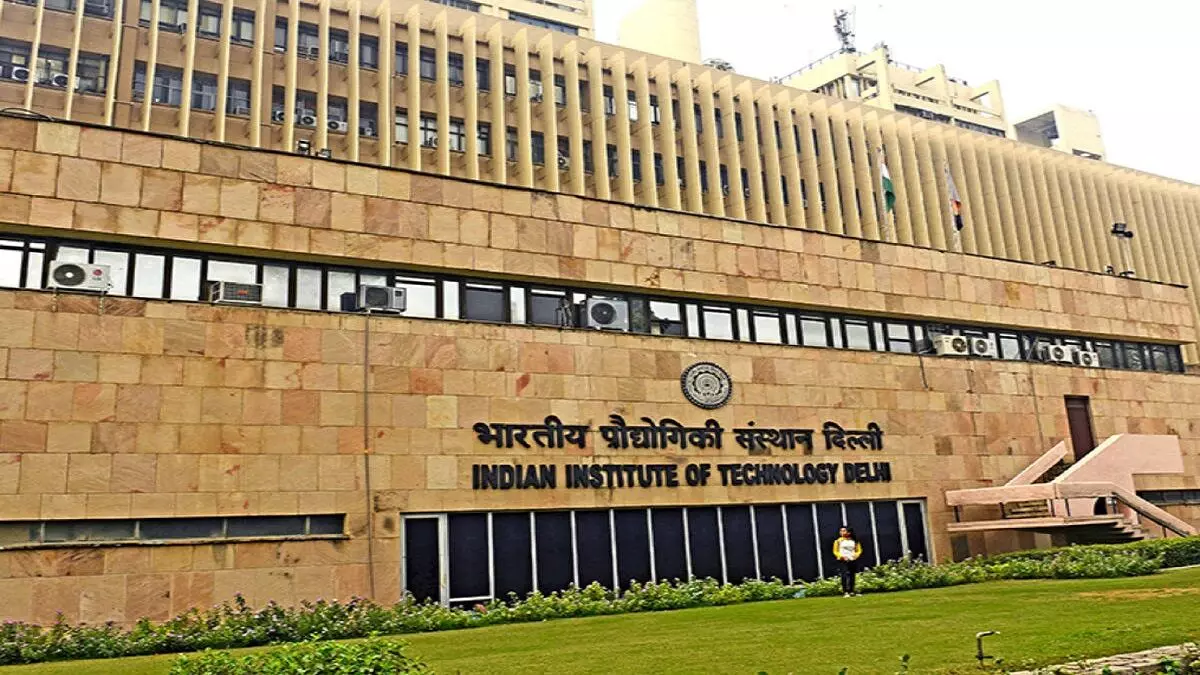'Want to create a more humane academic environment’
Says Prof Rangan Banerjee, Director, IIT Delhi, who doesn’t believe in technology determinism but recognises its need to fulfil the demands of humanity

In 2024, Professor Rangan Banerjee, Director, Indian Institute of Technology, Delhi (IIT-D), remains steadfast in his commitment to prioritising student wellness. Last year, he dropped a set of mid-semester exams to reduce the stress on students. Showing his continued dedication to this cause, the educationist is once again directing his focus towards enhancing the overall well-being of students on the campus this year too. “We are focusing more on student wellness. We are finding new mechanisms to support students who have difficulty with academics. We want to create a more humane academic environment,” he said.
This year, IIT Delhi is also opening a campus in Abu Dhabi as part of the ‘IITs go Global’ campaign, focusing on collaboration, knowledge exchange, and innovation in education. “The campus is set to open soon. There might be a formal inauguration in February. The first Master’s programme in Energy Transition and Sustainability will begin shortly. It’s interesting because the IIT Abu Dhabi campus incorporates some features and the look and feel of IIT Delhi,” said Prof Banerjee in the backdrop of the first anniversary of Millennium Post’s Education supplement.
The educationist also has extensive plans for IIT Delhi in 2024 — ranging from reimagining the infrastructure to revamping the curriculum. “The first initiative is to reimagine our infrastructure. Being a 60+ year-old institution, many of the hostels and blocks built initially require attention. Thus, we plan to demolish and reconstruct, and this needs a significant investment. We also hope to see a new curriculum happening this year. We have created a set of guidelines for each academic unit to modify its curriculum. We hope to have a more flexible and relevant curriculum this year,” he said.
Prof Banerjee highlighted the transformative impact of Covid-19 on the education system in India. While acknowledging the valuable lessons learned by educators, he expressed concern about the general shift in students’ attention spans and growing impatience.
“Covid-19 forced us to embrace online learning in a completely new way. Although we missed human interaction, many colleagues developed innovative methods, including virtual laboratories,” he said. He also mentioned how he noted a change in the learning approach of many students during these two years, highlighting increased impatience and short-term focus. “This trend existed even before Covid-19. So, the challenge for education continues to be in terms of keeping the excitement and interest of young people in the classroom alive. We have gone back to normal now. But some students still have difficulty in coming to terms,” he said. The institute director also highlighted the introduction of the New Education Policy (NEP) 2020 as a significant event in the Indian education system in the last two to three years. “NEP 2020 emphasises a multidisciplinary approach, flexibility, and multiple entry and exit points. Most of the academic institutions are looking at ways to integrate these approaches and modify their curriculum. We, at IIT Delhi, had many of the features already in our system. So, we are accentuating that,” he said.
The institute director pointed out that post-pandemic, there has been a resurgence in industry, growth, and more focus on becoming Atmanirbhar. “There’s much more focus on technology development and research. We, at IIT Delhi, have started new departments like the Department of Design and the School of Public Policy. So, we are diversifying. We are not just a science and engineering institute anymore. We are a full-fledged university,” said Prof Banerjee, who was involved in setting up a megawatt scale Solar Thermal Power Testing, Simulation, Research Facility sponsored by the Ministry of New and Renewable Energy (MNRE).
Meanwhile, the rapid ascent of Artificial Intelligence (AI) has organisations grappling but the AI progress is unlikely to slow down. The impact of the technology can also be felt in some sectors where it automates tasks previously performed by humans. Prof Banerjee admits that some routine jobs will definitely see a makeover while a number of different jobs will be created too. “Whether you look at AI, any development or technology, you have to look at the impact on society. I don’t believe in technology determinism. Technology has to be decided on the basis of what humanity needs. So, we must evaluate the purpose of developing AI, its integration with human intelligence, and the desired outcomes,” he said.
Prof Banerjee also advocates for a proactive approach rather than a reactive one, highlighting the need for comprehensive studies and analysis to anticipate the impact on jobs and determine the retraining and re-skilling required for embracing AI. “We have seen over time how technological changes have been rapid. So, we need to plan this a little bit more effectively. I think we need to have many more studies and analyses to figure out what is going to happen and what kind of retraining and reskilling we need to embrace AI. We generally have the attitude of ‘wait and watch’. But that’s not appropriate. Despite all that we say, we have so many problems like wars, poverty, health scare and climate change. There’s a limitation of human knowledge and we need to accept that. AI is going to give us a lot of benefits but it’s not going to solve all our problems like magic,” he said.



